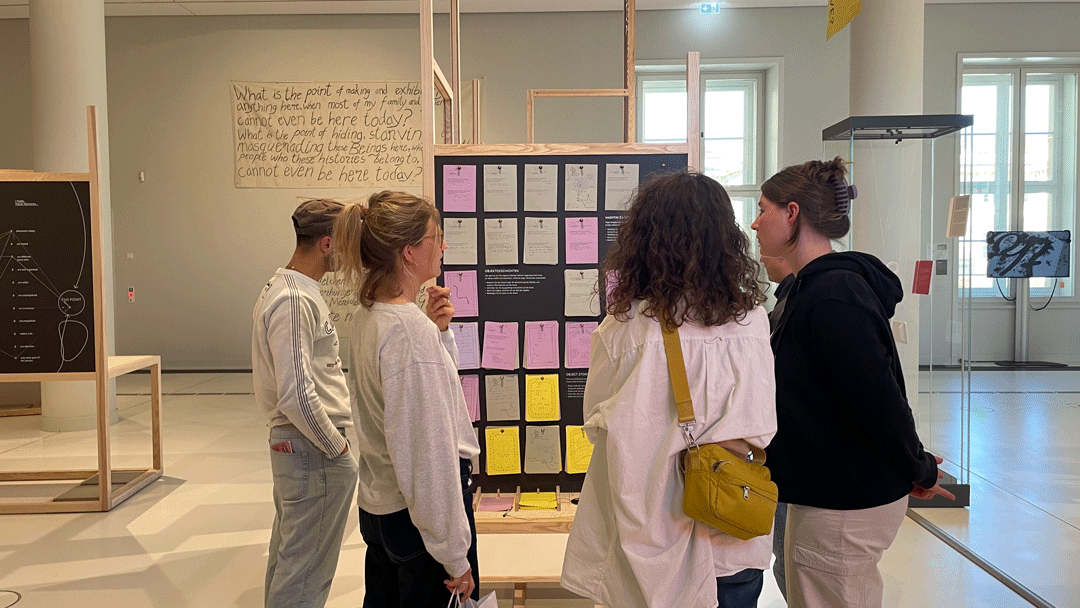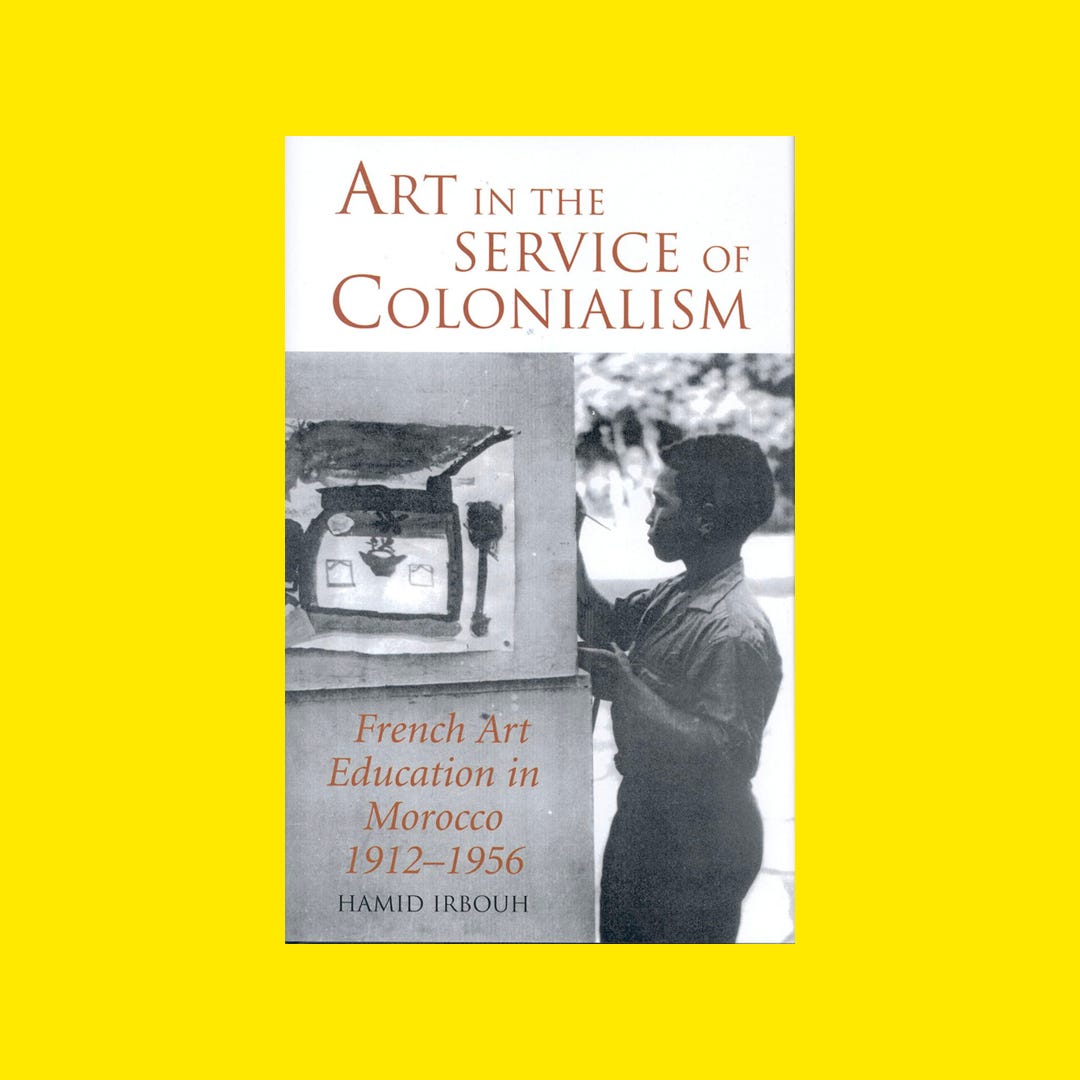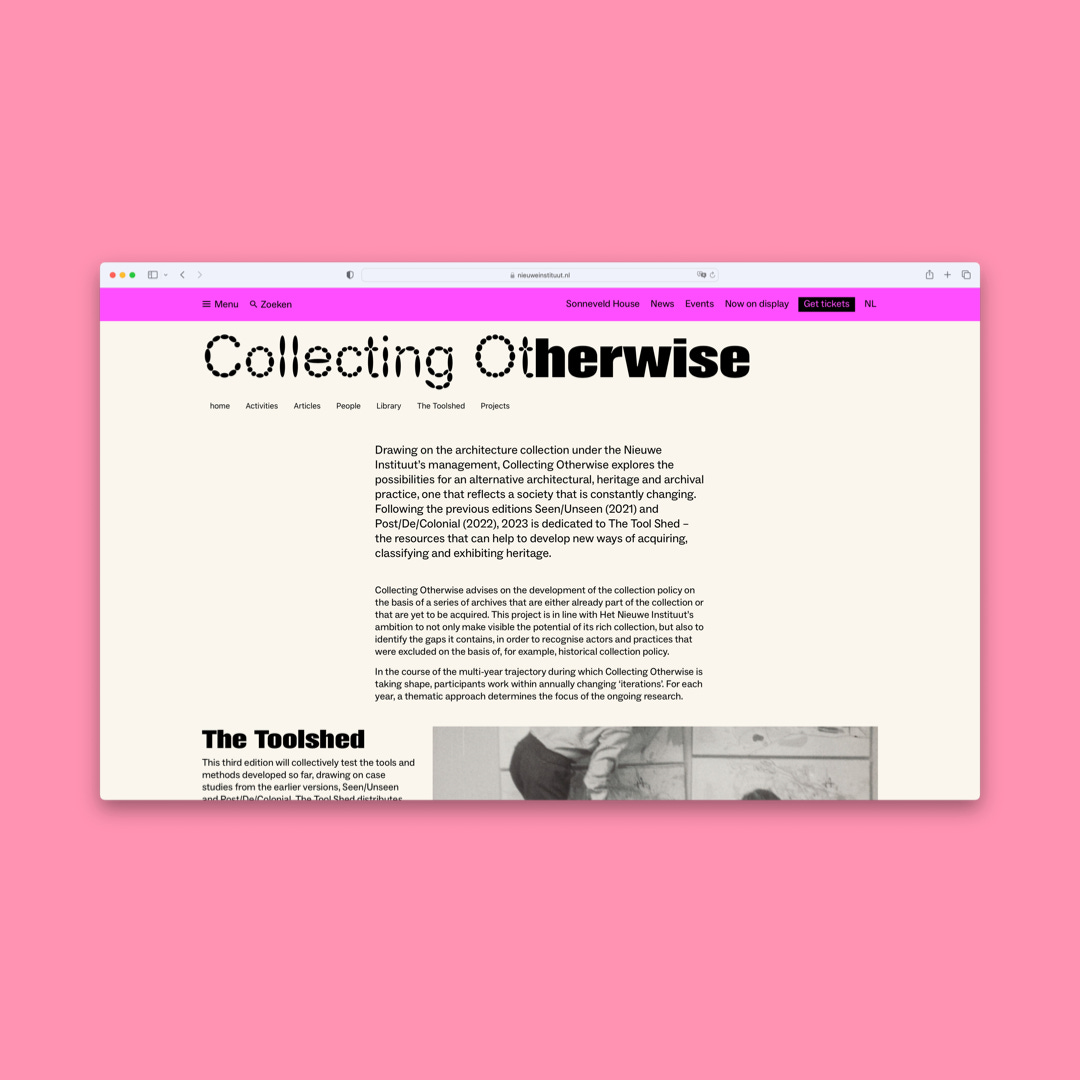Teaching Design – Infrequent Newsletter #4
Dear design teachers/learners and bibliography-lovers,
thanks for subscribing (or staying subscribed) to this mailing list and following the research project!
Since the bibliography is influenced by my ongoing teaching/learning practice I am sharing some insights "out of the class room" – this time a glimpse into my last year as
a guest professor at Studiengruppe Informationsdesign (IS) at Burg Giebichenstein Kunsthochschule Halle – which is coming to an end soon.
At Studiengruppe we collaborate with different initiatives such as Sea-Watch, Wegweiser eV and Rautenstrauch-Joest Museum in Cologne. The latter prompted us to look into discussions around Germany's colonial past and continuities, the objectification of subjects and questions of restitution and reparation.
This newsletter therefore has a focus on resources about the colonial entanglements of art/design schools as well as design museums.
Warm wishes and until next time,
Lisa
From the classroom
Trip to Berlin with students of Studiengruppe Informationsdesign (IS) to visit the temporary exhibition "Leerstellen.Ausstellen – Objekte aus Tansania und das koloniale Archiv" at Humboldt Forum
"In different sections the exhibition adresses the colonial-racist past of the exhibited 'objects' and asks questions like: To whom and where do the 'objects' in the museum depot belong? What stories do they tell? Which stories have been ignored? Should they still be exhibited in Berlin today?"
Caption of the Instagram post about the visit.
Added to the bibliography
Hamid Irbouh: Art in the Service of Colonialism – French Art Education in Morocco 1912-1956. London: I.B. Tauris, 2013.
Words from the publisher's website:
"In the Moroccan French Protectorate (1912–1956), the French established vocational and fine art schools, imposed modern systems of industrial production and pedagogy and reinvented old traditions. Hamid Irbouh argues that the French used this systematic modernisation of local arts and crafts regulation to impose their control. He looks in particular at the role and place of women in the structures of art production and education created by the French- that transformed and dominated Moroccan society during the colonial period. French women infiltrated the Moroccan milieu, to buttress colonial ideology, yet at critical moments, Moroccan women rejected traditional roles and sabotaged colonial plans. Meanwhile, the contradictions between reformist goals and the old order added to social dislocations and led to rebellion against French hegemony. Irbouh examines and analyses these processes and demonstrates how Moroccan artists have struggled to exorcise French influences and rediscover an authentic visual culture since decolonisation."
Carmen Mörsch: Die Bildung der A_N_D_E_R_E_N durch Kunst. Wien: Zaglossus, 2019.
"Gikandi zeigt in seiner Studie Slavery and the Culture of Taste, dass das Konzept des taste im 18. Jahrhundert bei der bürgerlichen Sublimierung der grausamen Konsequenzen des Kapitalismus, insbesondere der Verelendung in den Städten sowie des Versklavungshandels und der Institution der Sklaverei, eine wesentliche Rolle spielte. Dies gilt nicht nur für England, sondern auch für die Kolonien. Gerade weil die eigenen Privilegien durch die permanente Verletzung jener Ideale produziert wurden, die das eigene nationalidentitäre Selbstbild bestimmten, sei es nötig gewesen, sich von den A_n_d_e_r_e_n, durch deren Ausbeutung der neue Wohl-stand zustande kam, deutlich abzugrenzen."
Über Kunst und Kolonialismus mit Bénédicte Savoy. Jung & Naiv: Folge 514, 2021.
→ The conversation is in German and accessible here.
Collecting Otherwise – The Toolshed
Research project at Nieuwe Instituut, Rotterdam
Words from the projects website:
"Drawing on the architecture collection under the Nieuwe Instituut’s management, Collecting Otherwise explores the possibilities for an alternative architectural, heritage and archival practice, one that reflects a society that is constantly changing."
"This third edition [The Toolshed ] will collectively test the tools and methods developed so far, drawing on case studies from the earlier versions, Seen/Unseen and Post/De/Colonial. The Tool Shed distributes resources to archival communities for researching and developing reparative archival methods and collections."
→ You can learn more about the Toolshed here.
Tony Benett: The exhibitonary complex. In: new formations NUMBER 4 SPRING, 1988, pp. 73–102.
[…] in the context of late-nineteenth-century imperialism, it was arguably the
employment of anthropology within the exhibitionary complex which proved
most central to its ideological functioning. For it played the crucial role of
connecting the histories of Western nations and civilizations to those of other
peoples, but only by separating the two in providing for an interrupted
continuity in the order of peoples and races – one in which 'primitive peoples'
dropped out of history altogether in order to occupy a twilight zone between
nature and culture. […] So far as the museological display of artefacts from such cultures was concerned, this resulted in their arrangement and display […] in accordance with the genetic or typological system which grouped together all objects of a similar nature, irrespective of their ethnographic groupings, in an evolutionary series leading from the simple to the complex."
→ The text is accessible here.
Bonaventure Soh Bejeng Ndikung: Those Who Are Dead Are Not Ever Gone. South as a State of Mind, 10th issue, summer/fall 2018.
"Yet what many Western museums and institutions wrongly and forcefully harbouring many so-called ‘objects’ from the non-West do not understand, or have not fully recognised, is that most of the so-called ‘objects’ have never been and will never be objects. The objectification of these ritual and spiritual beings, historical carriers, cultural entities, orientations and essences is in line with the dehumanisation and objectification of humans from the non-West"
→ Access the essay here.
Anja Neidhardt, Heather Wiltse, and Anna Croon: Beyond Progress: Exploring Alternative Trajectories for Design Museums. DRS2022: Bilbao, 2022.
"Since established design museums still play a big role today, we suggest that they might have the potential to, instead of upholding discriminatory structures, contribute to dis-entangling the discipline from them."
→ Access the paper here.
ongoing Open Call
We invite contributions from you; design educators, students, alumni, researchers, pedagoges, enthusiasts and others to submit and share the sources which are reference points and/or inspiration to your practice! Your contribution will be published in our infrequent newsletter and in our text-based bibliography.
→ Find out how to contribute here.
Info
Teaching Design started as a collectively gathered bibliography focusing on design education from intersectional feminist and decolonial perspectives. Since its launch in September 2019, it has expanded into conversational formats, workshops, a temporary library and a space for reflections, which all has led to the platform in its current form.
→ Learn more about the research project here.
Currently the bibliography as well as this newsletter is curated and edited by Lisa Baumgarten unless mentioned otherwise.











